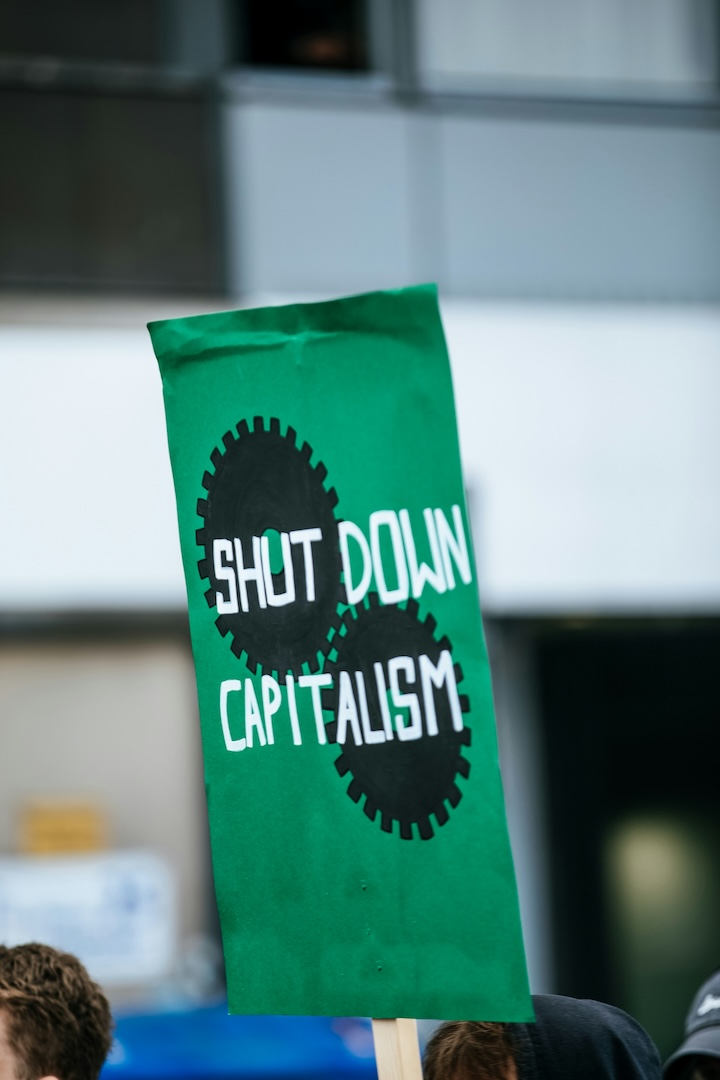Capitalism vs. Socialism
by CAPP-USA
Let’s define socialism and capitalism before we compare them.
What is Socialism?
Classic socialism, popularized by Karl Marx in the 19th century, is the transition phase between capitalism and communism wherein the state owns and regulates the means of production. People then share equally in the outputs of the system.
The goal is to make things equitable.

Capitalism vs. socialism. What does Catholic social teaching say?
Let’s state up front – Catholic social teaching rejects socialism. We’ll explain why.
What is Capitalism?
Capitalism is where private actors own and control property while demand and supply set prices in markets.
An essential feature of capitalism is the motive to make a profit.
Some Problems with Capitalism
Catholic social teaching does not reject capitalism. However, a key issue arises “[o]nce capital becomes an idol…once greed for money presides over the entire socioeconomic system”. This “ruins society, it condemns and enslaves men and women, it destroys human fraternity, it sets people against one another”. (Pope Francis, 1)
It is the “conviction that the economy must be autonomous, that it must be shielded from ‘influences’ of a moral character, [which] has led man to abuse the economic process in a thoroughly destructive way.” (Pope Benedict XVI, 34)
“Insofar as it [Unbridled Capitalism] denies an autonomous existence and value to morality, law, culture and religion, it agrees with Marxism, in the sense that it totally reduces man to the sphere of economics and the satisfaction of material needs.” (Pope St. John Paul II, 19)
So, the Church holds that at a fundamental level, there is little difference between socialism and unbridled capitalism!
However, “It is evident that this system [free markets] is not to be condemned in itself. And surely it is not of its own nature vicious.” (Pope Pius XI, 101)
The Problems with Socialism
Socialism, however, is “emphatically unjust” for it “would rob the lawful possessor, distort the functions of the State, and create utter confusion in the community.” (Pope Leo XIII, 4)
“This right, [to private property] which is fundamental for the autonomy and development of the person, has always been defended by the Church up to our own day”. (Pope St. John Paul II, 30)
Socialism, even moderate forms like democratic socialism, essentially reduces mankind into economic elements. The Catholic Church rejects that human beings can be so understood.
“Socialism…wholly ignoring and indifferent to [the] sublime end of both man and society, affirms that human association has been instituted for the sake of material advantage alone.” (Pope Pius XI, 118)
Socialism will never work because “It is not possible to understand man on the basis of economics alone”. (Pope St. John Paul II, 24)
The Free Market Economy
So, what economic system does the Church support?
Catholic social teaching recognizes that free enterprise, rightly understood and implemented, is currently the best available vehicle for systemically caring for the physical needs of the poor and that a true global economy is the key way to create lasting development and thereby, peace.
The “free” market advanced by Catholic social teaching is free — within limits. A foundational guide is that “money must serve, not rule”. (Pope Francis)
Pope St. John Paul II said of the free market that it “would appear that [it] is the most efficient way for utilizing resources and effectively responding to needs.” (Centesimus Annus, 32, 34)
However, free markets must be “circumscribed in a strong juridical framework, which places it at the service of human freedom in its totality”. (Pope St. John Paul II, 42)
The Bottom Line
The free market economy is an “important source of wealth and should be viewed carefully and favorably.” (Pope St. John Paul II, 32)
Click the links below to learn how Catholic social teaching guides economics.





